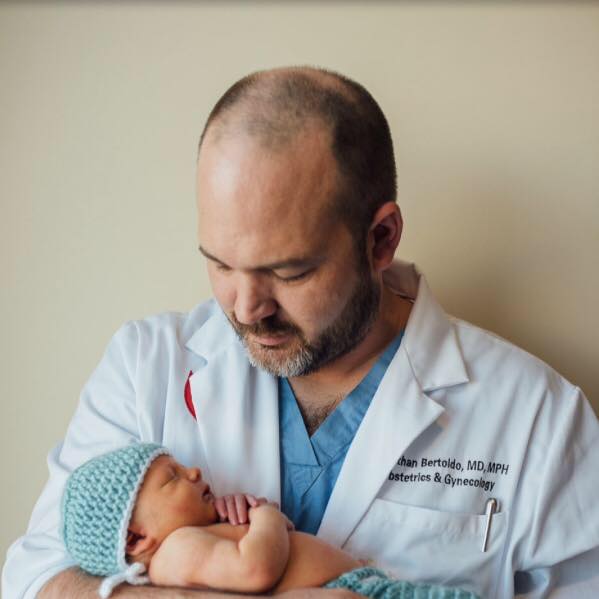Menu
Our Services
Gynecologic Care
Mt. Naomi Women’s Health is a obstetrics & gynecology practice in Logan, Utah. Our gynecologists call Cache Valley home, and they're dedicating to diagnosing, treating and providing healthcare for women of all ages. Along with well-woman exams, we provide care and guidance for pregnancy planning, birth control, infertility, irregular periods, menopause, incontinence, endometriosis, pelvic pain, and other issues affecting the female reproductive system.
Every day, we help our patients address a variety of women's health concerns. Here's a list of some of the gynecologic care services we provide:
- Annual Gynecology Exams
- Ultrasonography
- Contraception & Birth Control
- PAP Smear
- Endometriosis
- HPV Testing & Vaccination
- Hysterectomy
- Robotic-assisted Surgery
- Menopause
- STD Testing
- Infertility Treatment
- Urinary Incontinences
- 3D Mammography
- Pelvic Surgery
Get started with
Mt. Naomi Women's Health
Are you looking for knowledgeable, compassionate care from gynecologists that will take your concerns seriously? Dr. Kristin Craig, Dr. Nathan Bertoldo, and their team at Mt. Naomi Women's Health are dedicated to providing the highest standard of care to the women of Northern Utah.
Whatever your circumstances may be, from pregnancy to menopause, we hope you'll consider us to walk with you and provide excellent care.
Video: Meet Dr. Kristin Craig
Play Video
Meet Our Providers

Kristin Craig, M.D.
Learn about Dr. Craig →

Nathan Bertoldo, M.D.
Learn about Dr. Bertoldo →
GYNECOLOGIC CARE
Frequently Asked Questions
Do you have questions about women's health? We can help!
What can we help you with?
Well-Woman Care
A gynecologist is a medical doctor that specializes in caring for women’s reproductive health. Gynecology is about keeping women healthy as well as treating medical conditions and illnesses having to do with the reproductive system.
Between the ages of 11 and 18, teenage girls could potentially see a pediatrician, a family practice provider and/or a gynecology provider. The majority of health care needs can be addressed by family medicine or pediatric providers. However, there are circumstances where it’s appropriate to have a younger patient see a gynecologist, such as:
– Delayed puberty (no breast tissue changes before age 14) or delayed menarche (no menstrual cycles prior to age 16)
– Painful menstrual cycles, especially if missing school or activities due to symptoms
– Unable to wear a tampon
– Any sexual health concerns or contraceptive needs
Additionally, the human papillomavirus (HPV) vaccination is recommended during the teenage years to help prevent cervical cancer in the future. Your health care provider can give you more information regarding HPV vaccination at your appointment.
Every three years, women 21-29 years old should get a PAP test (see below), as part of a Well-Woman Exam. Every five years women 30-65 should get a PAP Test and HPV Test. Well-Woman Exams will go over all the things you need to know and do to keep healthy.
Your appointment with Mt. Naomi Women’s Health will cover any questions you may have about your reproductive health, including birth control options, problems with your monthly period, Sexually Transmitted Diseases (STDs), and pregnancy-related concerns. It’s also a good time to raise any concerns about troublesome conditions or symptoms you’ve experienced.
Every three years, women 21-29 years old should get a Pap test (see below), as part of a Well-Woman Exam. Every five years women 30-65 should get a Pap Test and HPV Test. Well-Woman Exams will go over all the things you need to know and do to keep healthy.
A Pap smear, also called a Pap test, is a procedure to test for cervical cancer in women. The current recommendation for Pap smears is every three years starting at age 21, and then every five years after age 30. Watch Dr. Bertoldo’s video about PAP smears below:
Periods & Menstruation
The time from the first sign of blood to the last is usually in the 3-to-5-day range. It’s common for cycles to be a little irregular for a few years after your first period. This means your periods may not always come at the same time every cycle, and they may be a bit different from one month to the next. As teenagers progress through adolescence, cycles tend to become more regular and start to reflect adult cycle ranges, but they may still be a bit variable.
For many women, periods can be a real misery. Common symptoms & pains include:
– Abdominal cramps
– Headaches and back pain
– Breast tenderness
– Mood swings or nausea
You definitely shouldn’t suffer severe discomfort in silence. Make an appointment with your gynecologist so they can investigate possible causes. They may be able to recommend ways you can alleviate pain relating to your menstrual cycle.
There are several reasons why your period might be late:
– You might be pregnant. If you think this could be the case, you can take a home pregnancy test or see your doctor to check.
– However, several other factors can cause late or even missed periods, for example; medication, stress, diet, or exercise.
– Young women, whose cycles are not yet so well established, often have hormonal fluctuations that can cause late or even missed periods.
Many women and girls suffer from irregular bleedings during their monthly menstrual cycles.
Your period is irregular if it comes more frequently than 21 days, or you go 35 days or more between periods.
Sometimes irregular periods can be caused by:
– Certain medicines
– Exercising too much
– Low body weight
– High body weight,
– Hormonal imbalances, e.g. thyroid hormone level abnormalities
Please check with your gynecologist who may be able to help you find out the underlying reason and discuss treatment options. If you also need a contraceptive, they may prescribe a hormonal one which prevents you from unintended pregnancies and may reduce your irregular bleedings.
Birth Control & Contraception
There are many different types of birth control, including medications, stick-on patches, IUD’s, implants, & injections. There are also some more permanent surgical options such as hysterectomies. Risks and effectiveness can vary, so we recommend you consult with your provider to find out which option is best for you. Click here to schedule an appointment with us.
An IUD (intrauterine device) is a tiny t-shaped device made of plastic or copper that is inserted into the uterus to prevent pregnancy. Once inserted, it can last up to 10 years, so it’s definitely a long-term option for birth control. However, it can be removed at any time should you decide you want to get pregnant.
There are two main types of IUDs: hormonal IUDs and non-hormonal IUDs. Mirena, Kyleena, and Skyla are all types of hormonal IUDs (meaning they work by releasing hormones into your uterus that work to prevent pregnancy). Paragard is a non-hormonal IUD that is wrapped in copper, which kills any sperm so that it can’t fertilize eggs.
Are IUDs safe? Watch Dr. Bertoldo’s video about IUDs below:
Watch Dr. Bertoldo’s video about hysterectomies below:
Menopause
Menopause marks the end of your menstrual cycles, and it typically happens in your 40s or 50s (the average age in the U.S. is 51, according to the Mayo Clinic) Menopause is generally diagnosed after you’ve gone 12 months without a menstrual period.
Leading up to menopause, you might experience symptoms such as:
– Irregular periods
– Hot flashes
– Night sweats
– Chills
– Vaginal dryness
– Difficulty sleeping
– Mood swings
– Slowed metabolism and/or weight gain
– Dry skin
– Thinning hair
– Loss of breast fullness
There are many effective treatments available– ranging from lifestyle changes to hormone therapy. Contact your provider or schedule an appointment today!
Postmenopausal bleeding is vaginal bleeding that occurs a year or more after your last menstrual period. It can be a symptom of vaginal dryness, polyps (noncancerous growths) or other changes in your reproductive system. In about 10% of women, bleeding after menopause is a sign of uterine cancer.
Watch Dr. Bertoldo’s video about post-menopausal bleeding below:
The American Cancer Society recommends that you should schedule regular colonoscopies every 10 years. This recommendation starts once you turn 45 if you’re in good overall health and you don’t have a family history cancer, but your gynecologist may recommend you start early depending on your unique situation.
Watch Dr. Bertoldo’s video about colonoscopy recommendations below:
Robotic-Assisted Surgery
Dr. Bertoldo is one of the only providers in the area trained to use the DaVinci Robotic System, which allows for minimally-invasive surgeries. Watch a brief overview here:
Watch Dr. Bertoldo’s explanation of the benefits of using the DaVinci Robotic System for female surgeries:
If you have a medical emergency, call 911 or go to the nearest hospital. An emergency medical condition is one of the following: (1) a medical condition manifested by acute symptoms of sufficient severity (including severe pain) that the lack of prompt medical attention could reasonably be harmful to your health. or body functions or organs; (2) active labor if there is not enough time for a safe transfer to a planned hospital (or a specific hospital) prior to delivery or if the transfer endangers your health and safety (or that of your unborn child)), or (3) a mental disorder that is manifested by acute symptoms of sufficient severity that you pose an imminent danger to yourself or others, or are unable to provide or use food, shelter or clothing immediately due to the mental disorder.
This information is not intended to diagnose health problems or to replace specific medical advice or treatment given to you by your doctor or other healthcare professional. If you have ongoing health problems or have additional questions, ask your doctor. If you have any questions about your medicine or need more information, ask your pharmacist.